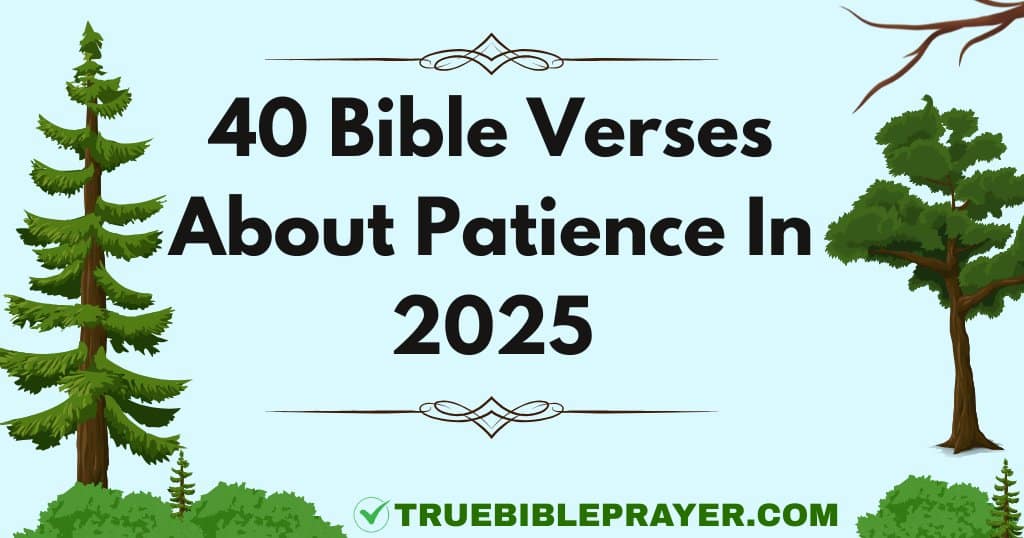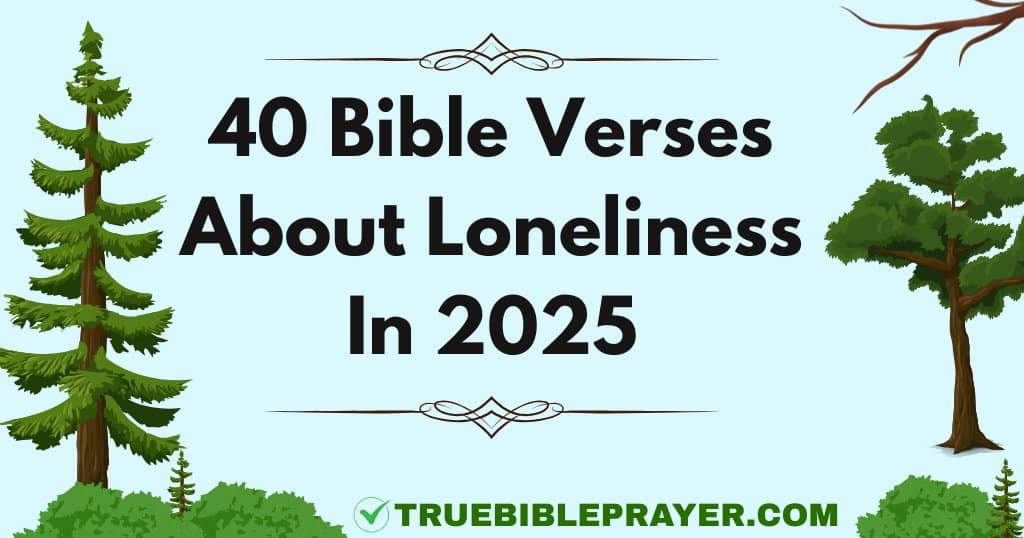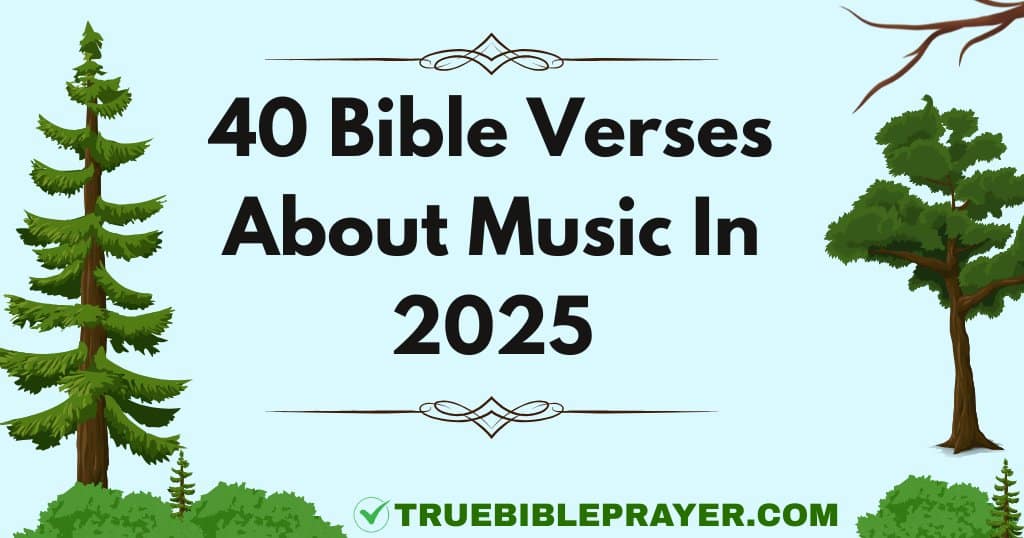In times of uncertainty, many turn to prayer for comfort and guidance. If you’re asking, “Where in the Bible does it talk about the rapture?” you’re likely seeking peace and understanding. The rapture is a powerful and often emotional topic for believers, and it can stir many questions about faith, hope, and the future.
As you dive into the scriptures, know that you’re not alone. This article will offer meaningful prayers and insights that can bring clarity and reassurance. Let these words guide you as you explore the Bible’s teachings on the rapture, helping you find strength and faith in the promises of God.
Where in the Bible Does It Talk About the Rapture?
The concept of the rapture is one that has fascinated and comforted Christians for centuries. Many believers seek answers about when and where the Bible mentions the rapture, especially during times of uncertainty or spiritual longing. If you’re asking, “Where in the Bible does it talk about the rapture?” you are certainly not alone in this quest for understanding. The rapture, often seen as the moment when Christ returns to gather his faithful, holds profound significance in Christian eschatology.
Though the term “rapture” itself is not explicitly found in many Bible translations, several passages describe the event in detail, often alluding to the sudden and miraculous gathering of believers. These verses, both directly and indirectly, form the foundation for many Christian teachings surrounding the rapture. In this article, we will explore key scriptures that mention the rapture, provide context, and help deepen your understanding of this important biblical doctrine.
Key Bible Verses About the Rapture
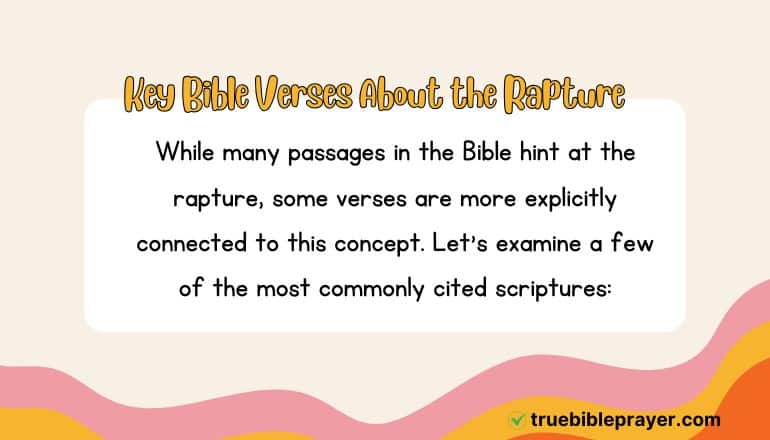
While many passages in the Bible hint at the rapture, some verses are more explicitly connected to this concept. Let’s examine a few of the most commonly cited scriptures:
1. 1 Thessalonians 4:16-17
“For the Lord Himself will descend from heaven with a shout, with the voice of an archangel and with the trumpet of God. And the dead in Christ will rise first. Then we who are alive and remain shall be caught up together with them in the clouds to meet the Lord in the air. And thus we shall always be with the Lord.” (NKJV)
This is one of the clearest references to the rapture in the Bible. The apostle Paul writes to the Thessalonians, explaining that believers—both those who have passed away and those still alive—will be gathered together when Jesus returns. The word “caught up” in verse 17 is often linked to the concept of the rapture. It’s important to note that this verse emphasizes that the faithful will meet the Lord in the air, rather than His second coming happening on Earth at this moment.
2. 1 Corinthians 15:51-52
“Behold, I tell you a mystery: We shall not all sleep, but we shall all be changed— in a moment, in the twinkling of an eye, at the last trumpet. For the trumpet will sound, and the dead will be raised incorruptible, and we shall be changed.” (NKJV)
Here, Paul introduces the idea that not everyone will die before Christ returns. Some believers will be alive at His coming and will undergo a transformation, receiving glorified bodies that are imperishable. This passage, often linked with the rapture, speaks of the sudden and glorious nature of the event, as believers are instantaneously changed.
3. Matthew 24:40-42
“Then two men will be in the field: one will be taken and the other left. Two women will be grinding at the mill: one will be taken and the other left. Watch therefore, for you do not know what hour your Lord is coming.” (NKJV)
In this passage, Jesus speaks of a moment of separation where one is taken, and the other is left behind. This is often associated with the rapture, where those who are faithful to Christ are taken up to meet Him, while others remain. The passage serves as a reminder to be vigilant and prepared for Christ’s return.
4. Revelation 3:10
“Because you have kept My command to persevere, I also will keep you from the hour of trial which shall come upon the whole world, to test those who dwell on the earth.” (NKJV)
Though this verse doesn’t directly mention the rapture, it has been interpreted by many scholars as a promise of protection for the faithful from a time of tribulation or judgment that will affect the world. This protection is often associated with the rapture, where believers are spared from the suffering and turmoil that will unfold during the end times.
Understanding the Rapture in Context
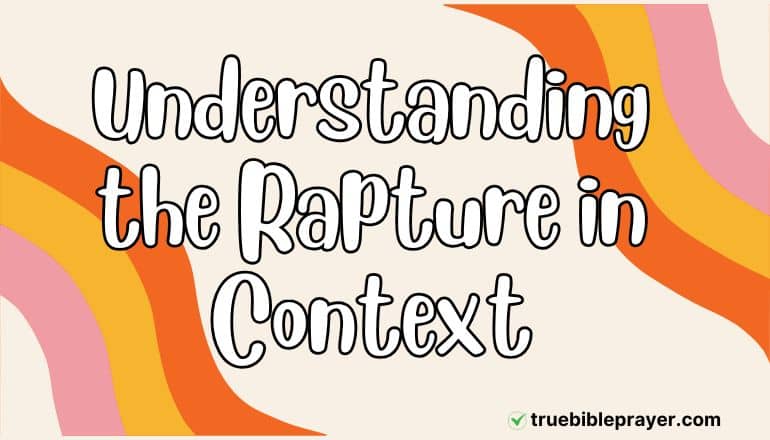
The rapture is a subject of deep debate among Christians, with different denominations offering various interpretations. While the verses above are often cited to support the doctrine of the rapture, there are other perspectives to consider.
The Pre-Tribulation Rapture
One common belief is the pre-tribulation rapture, where Christians believe they will be taken up to heaven before the period of tribulation, which is marked by suffering and chaos on Earth. This belief is grounded in verses like Revelation 3:10 and 1 Thessalonians 4:16-17, suggesting that the faithful will be spared from God’s wrath.
The Post-Tribulation Rapture
Alternatively, some Christians believe in a post-tribulation rapture, where the faithful will endure the tribulation and only be taken up at the end of this period. This interpretation is based on a more literal reading of verses like Matthew 24:29-31, where Christ’s return follows a time of distress and tribulation.
The Mid-Tribulation Rapture
Another viewpoint is the mid-tribulation rapture, where believers will be taken up at the midpoint of the tribulation period. This belief is less commonly held but still has support among some biblical scholars who interpret various prophetic passages differently.
The Comfort and Hope of the Rapture
Regardless of the specific interpretation of the rapture, one thing is clear: the doctrine of the rapture provides hope and comfort to Christians around the world. It is a promise that, in the end, God will gather His people and bring them into His eternal presence. Whether you believe the rapture will occur before, during, or after the tribulation, the ultimate message is one of divine protection, love, and the fulfillment of God’s promises.
The Rapture and Its Connection to Biblical Prophecy
Understanding the rapture requires looking at it in the broader context of biblical prophecy. Throughout the Bible, many passages reference the end times—events that will unfold before the second coming of Christ. The rapture is often seen as part of this larger picture, particularly in the context of the tribulation and the final judgment.
The Tribulation and the Rapture
The Bible speaks about a period of tribulation—times of great suffering and chaos—that will occur before the end of the world as we know it. The tribulation is detailed in the books of Daniel and Revelation, describing catastrophic events, wars, famines, and widespread destruction. Many Christians believe that the rapture will take place before this period of tribulation, sparing believers from the harshest of these events.
This belief in the pre-tribulation rapture is supported by verses such as 1 Thessalonians 4:16-17, which describes the sudden, peaceful gathering of believers in the air. Supporters of this view argue that it fits with the idea of God sparing His people from His wrath. In addition, passages like Revelation 3:10 suggest that the faithful will be protected from the “hour of trial” that is to come upon the Earth.
However, other interpretations argue that Christians will face the tribulation, and their endurance will be part of the final victory over evil. These interpretations draw on scriptures like Matthew 24, where Jesus describes a period of tribulation that will be followed by His return to Earth.
The Second Coming and the Rapture
The second coming of Christ is the ultimate event that Christians await—when Christ will return in glory to judge the living and the dead. Many people associate the rapture with this event, but there are key differences in how the Bible portrays them.
The rapture, as described in 1 Thessalonians 4:16-17, is a moment where believers are caught up to meet Christ in the air. This event is characterized by peace, as Christ gathers His people and transforms their bodies into glorified, incorruptible forms. In contrast, the second coming of Christ involves His return to Earth, where He will establish His kingdom and bring justice to the nations. Passages such as Revelation 19:11-16 describe this event, where Christ is seen as a conquering King, defeating the forces of evil.
It’s essential to recognize that while the rapture and the second coming are distinct events in many theological views, both serve to fulfill God’s promises. The rapture provides hope for believers, while the second coming signifies the ultimate victory of God’s kingdom.
The Rapture and Practical Implications for Believers
The teaching of the rapture is not just a theological concept but also has practical implications for Christians today. It calls believers to live with a sense of urgency and readiness, knowing that Christ could return at any moment. This understanding shapes how many Christians approach their daily lives, motivating them to live faithfully, share the gospel, and remain vigilant in their faith.
Living in Expectation
The Bible encourages believers to live in anticipation of Christ’s return. In Matthew 24:42, Jesus warns His followers to “watch therefore, for you do not know what hour your Lord is coming.” This call to watchfulness extends beyond merely waiting; it’s about living in a way that reflects the hope and expectation of Christ’s imminent return.
For many Christians, this means living with integrity, compassion, and a desire to fulfill God’s will on Earth. The belief in the rapture reinforces the urgency of maintaining a strong relationship with God and being prepared spiritually for whatever may come.
Comfort and Reassurance
For many believers, the idea of the rapture is a source of great comfort. The thought of being gathered with loved ones and meeting Christ face-to-face in the air offers solace in the face of life’s struggles. The rapture represents a promise that, in the end, God will protect and rescue His people from the troubles of the world.
In times of trial, Christians can find peace in knowing that God’s plan includes their ultimate redemption. Whether the rapture occurs before, during, or after the tribulation, the central message remains the same: God is faithful, and He will bring His people into His eternal presence.
Conclusion: Embracing the Hope of the Rapture
The question, “Where in the Bible does it talk about the rapture?” leads us to a deeper exploration of Scripture and the promises God has made to His people. While the Bible doesn’t provide a singular, explicit definition of the rapture, the passages we’ve explored offer clear insights into this important doctrine.
The rapture is a source of hope, a promise of deliverance, and an encouragement to live faithfully while waiting for the return of Christ. Regardless of how one interprets the timing or specifics of the event, the rapture serves as a reminder of God’s love and the ultimate victory He will bring.
As you reflect on these scriptures and teachings, remember the words of 1 Thessalonians 4:18: “Therefore comfort one another with these words.” May this reminder of God’s promises bring you peace and assurance as you continue to walk in faith, awaiting the glorious return of our Savior.


